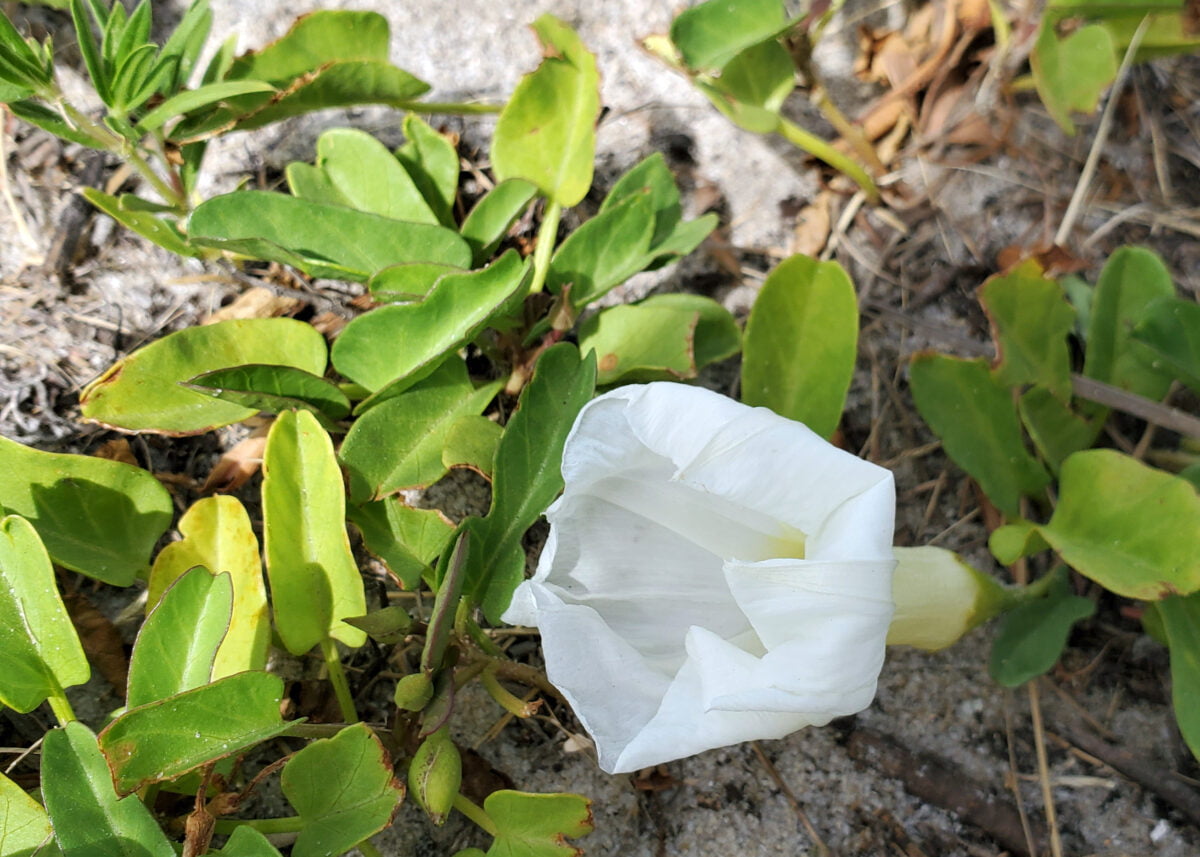Scientific name: Ipomoea imperati
Other common names: Hawaiian name, Hunakai. Portuguese, Ipomeia branca da praia. Spanish, campanita de playa, batatilla, bejuco de costa, bejuco de puerco de costa. In Cuba, boniato de playa.
This beach plant shares its common name with Ipomoea pes-caprae, or goat’s foot, but can be easily distinguished by its white flowers.
Ipomoea imperati is a member of the Morning glory family (Convolvulaceae), which comprises some 1,650 species throughout the world. It is primarily recommended for natural landscapes and habitat restorations. It serves as a sand stabilizer. Also as an accent groundcover in coastal uplands.
Identification
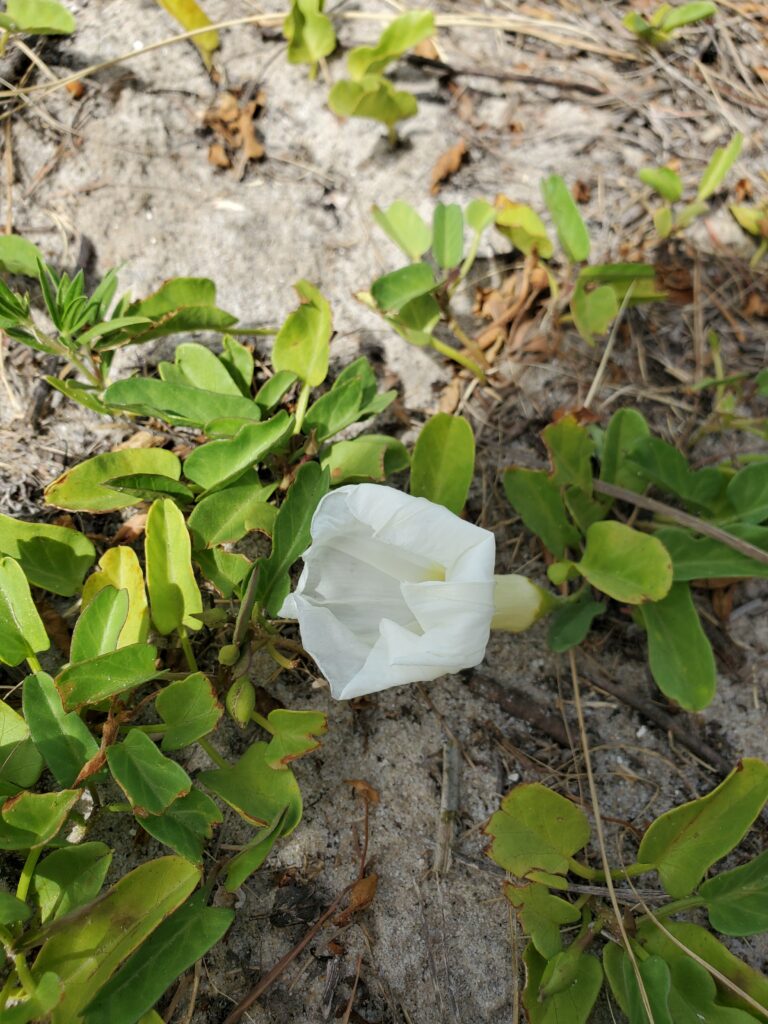
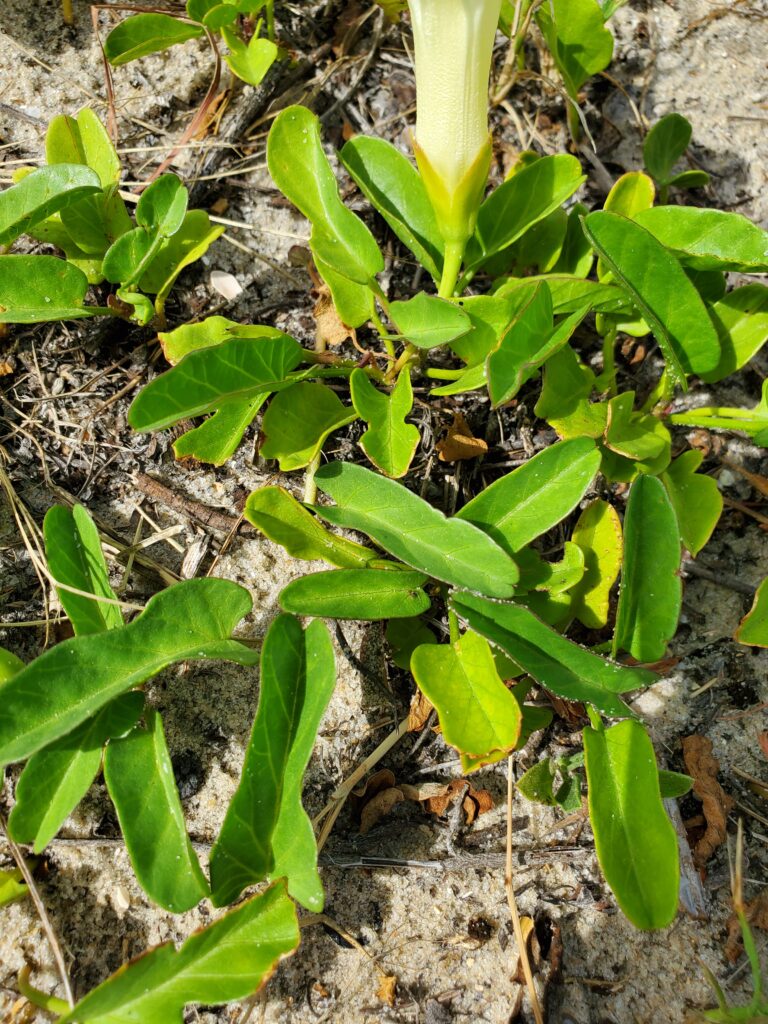
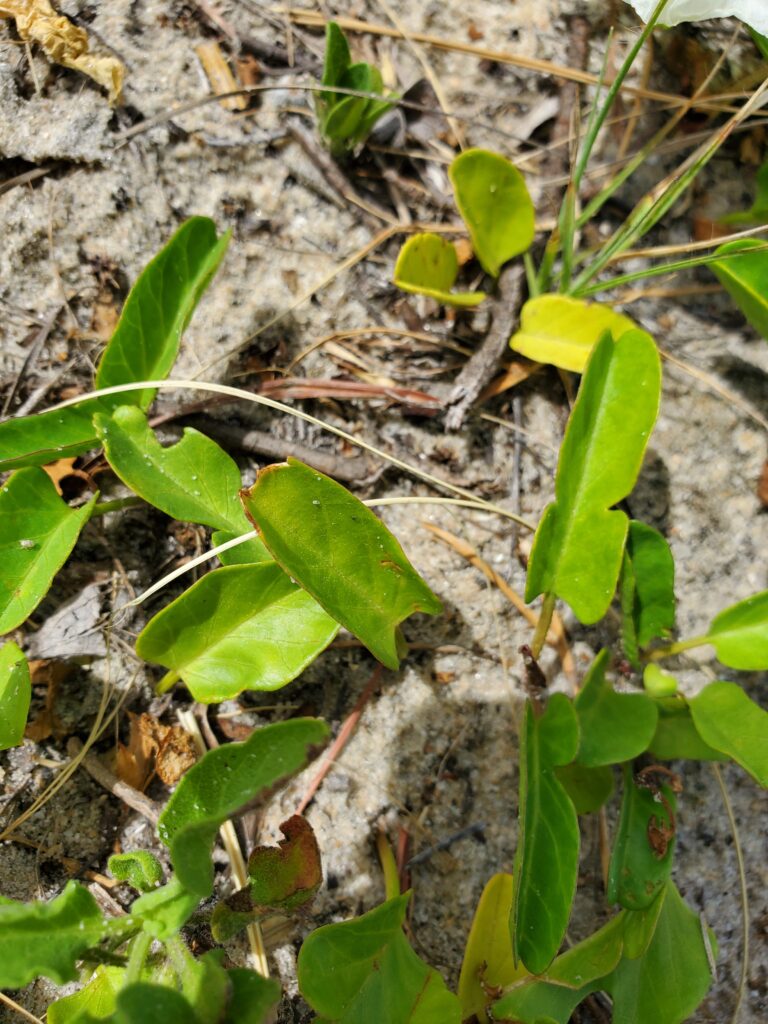
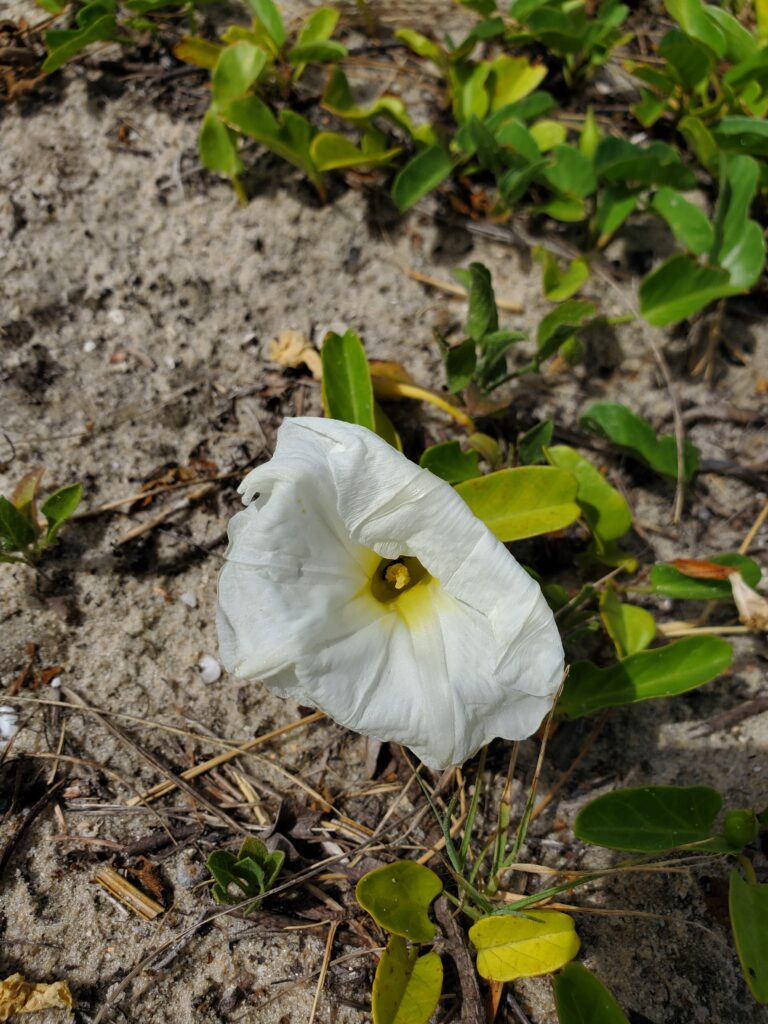
There is some debate about the etymology of Ipomoea. Some credit it to the Greek ips, ‘worm,’ and homoios, similar to, meaning ‘worm-like,’ in reference to its vining habit. According to Deane of Eat the Weeds, these meanings were confused by a bad translation. Ipo is closer to ‘beneath’ or ‘under’ in meaning. The Greek omoio, meanwhile means ‘similarity.’ The combined meaning of which is ‘similar to underground.’ This can be a reference to roots or tunnels beneath the earth. Imperati is derived from the Latin imperatus, ruler or emperor. 1
The Beach morning glory’s flowers are trumpet like and white with a yellow center. Blooms are typically larger than the leaves. It flowers primarily Spring to Fall, with its peak during Summer months. In addition to the difference in flower color, the leaves of I. imperati are smaller and more linear or lanceolate, meaning of a narrow oval shape tapering to a point, than goat’s foot, which tend to be larger and more circular or oval shaped. The leaves can, however, vary in shape. The vines also differ, with beach morning glory having an about 30 feet spread, shorter than that of the similar goat’s foot (up to 100 ft). The plant is considered a long-lived perennial and attracts pollinators.
Growing/Foraging
Beach morning glory is easy to grow and maintain. Its seeds disperse by floating in seawater. These plants require full sun and dry conditions. They spread passive aggressively, meaning it is not necessary to prune unless they begin invading nearby plant beds. Once the plants are well established, they should only be watered in times of prolonged drought. They are considered extremely drought tolerant. The natural habitat of the Beach morning glory is beaches and sand dunes. It is salt-tolerant but does not tolerate long-term salt or brackish water flooding it’s roots. The plant is also prone to sweet potato weevils and the red spider mites.
Sustainability
It is Native to most of the south eastern United States, Hawaii, the Caribbean. It can be found throughout all of Florida.2 It is not endangered and is considered invasive in some places where it grows. It is prohibited in Arizona and considered a harmful weed in Arkansas.
Medicinal and Food Properties
Ipomoea imperati is widely used in tropical areas to treat several pathological conditions. In one study 3 an extract of the plant’s leaves showed promising potential against the parasite known as barber’s pole worm (H. contortus).
A review by Marilena Meira at al. 4 found the following medicinal uses:
A methanol-water extract (a mixture of non-drinking alcohol and water, used to pull out the medicinal properties) from the leaves of I. imperati showed anti-inflammatory actions, both at the site of inflammation and throughout, in mice and rats. This same extract also relieved involuntary muscle spasms (antispasmodic activity) on the the third portion of the small intestine, called the ileum, inhibiting histamine (a compound which is released by cells in response to injury and in allergic and inflammatory reactions, causing the contraction of smooth muscle and dilation of capillaries) and acetylcholine (a compound which occurs throughout the nervous system, and functions as a brain signal sender, neurotransmitter, and in this case, turns on the pain response). No toxicity was found in the mice at 1 mg/kg of I. imperati methanol-water extract after 24 hours 5.
Ipomoea imperati also significantly prevented the formation of gastric lesions 6. Last, ethanol extract, lipid and aqueous fraction of I. imperati significantly stopped the abdominal constriction in mice induced by acetic acid, commonly found in vinegar; increased the sleeping time evoked by a sedative used for sleep conditions and anxiety (pentobarbital sodium); and showed significant activity stopping pain and inflammation (formalin-induced paw edema) in mice 7.
Beach morning glory is not recommended as food.
Safety
Some species in the Ipomoea genus are known to be toxic to humans if ingested. If you’re not sure, don’t eat it!
Recipes
-
Compress for Inflammation
A compress for muscle spasms or menstrual pain.
Sources

